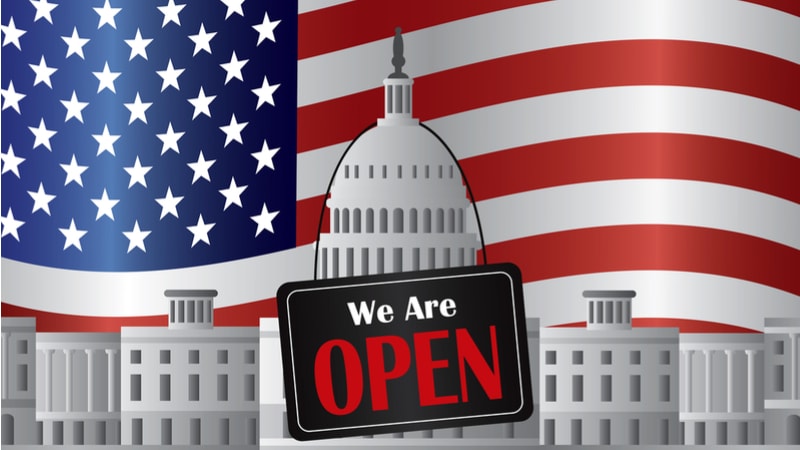
The House of Representatives voted 222-209 on Wednesday evening to approve a funding package to reopen the federal government, ending the longest government shutdown in U.S. history.
Speaker Mike Johnson, R-La., called on House members to return to Washington for the vote, marking their first day back in session since Sept. 19.
The vote comes after the Senate approved the funding bill on Monday. Eight Democratic senators crossed the aisle to vote for the short-term continuing resolution (CR), which extends government funding through Jan. 30, 2026.
President Donald Trump said he will sign the proposal when it reaches his desk, officially restoring funding and reopening the government.
The deal includes three full-year appropriations bills that would fund the Department of Veterans Affairs and military construction, the Department of Agriculture and the Food and Drug Administration, as well as the legislative branch.
Additionally, the CR reverses the reductions in force (RIFs) that the Trump administration implemented during the government shutdown, and it prevents any future layoffs until the end of January.
Notably, over 4,000 federal employees have been cut amid the shutdown. However, a federal judge filed a preliminary injunction aimed at blocking many of the layoffs.
The bill also ensures back pay for federal employees that were furloughed and those that continued to work throughout the shutdown. This is a key inclusion in the CR, as the White House warned in October that furloughed federal employees may not be guaranteed back pay.
Absent from the bill is an extension of expiring healthcare subsidies – a key demand of Democrats during the shutdown. However, in exchange for the eight Democratic votes, Republicans have agreed to hold a vote on extending the Affordable Care Act subsidies by mid-December.
CISA 15 Gets Extension
The CR includes an extension of the Cybersecurity Information Sharing Act of 2015 (CISA 15) through Jan. 30, 2026. CISA 15 expired at midnight on Sept. 30.
CISA 15 puts in place a legal framework for government and the private sector to share cybersecurity threat data. The law has been hailed as foundational to improving U.S. cybersecurity.
Ryan Gillis, senior vice president and global head of government partnerships at Zscaler, told MeriTalk that this extension is critical.
“Zscaler supports extending the cyber information sharing authorities,” Gillis said. “These authorities share broad bipartisan support across Congress, the administration, and private industry. They provide the essential framework enabling real-time threat intelligence sharing across industry and with the government, breaking down the silos that attackers exploit.”
“We look forward to working with Congress on permanent authorization of these critical authorities,” he added.
While the CR only extends the authorities through January, the White House and the national cyber director have called for a 10-year reauthorization.
“I just want to be abundantly clear that we are for, and the White House is for, a 10-year clean reauthorization of CISA,” National Cyber Director Sean Cairncross said last month while speaking at the 2025 Meridian Summit in Washington.
“It’s a foundational law. It provides necessary liability and antitrust protection for industry to share information. It’s important for national security. It’s vital for our threat assessment and response, and we want to see it done,” Cairncross said.
